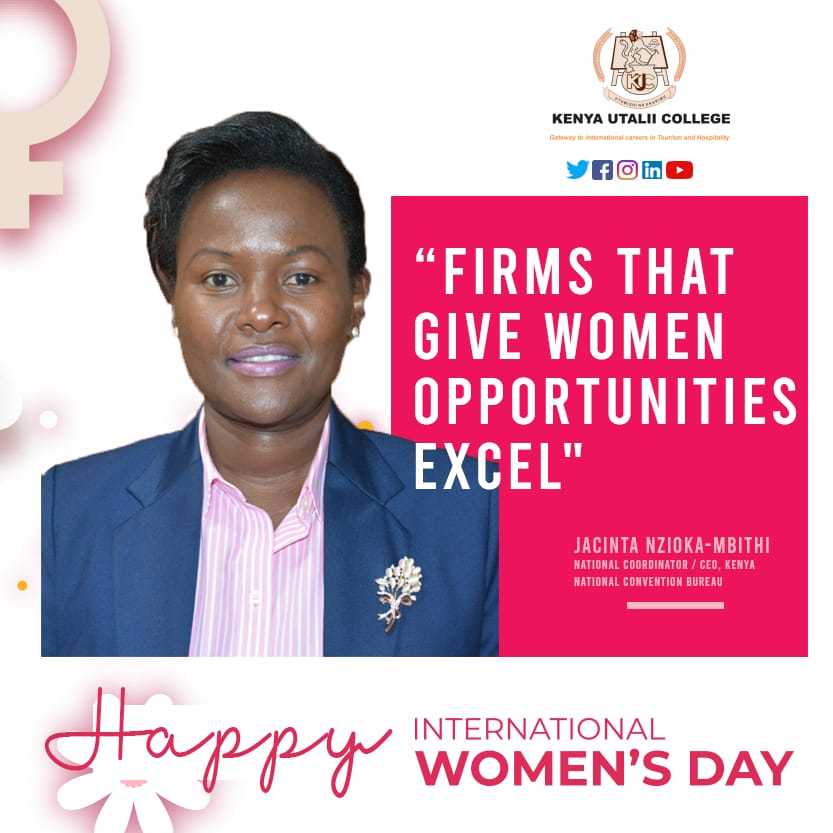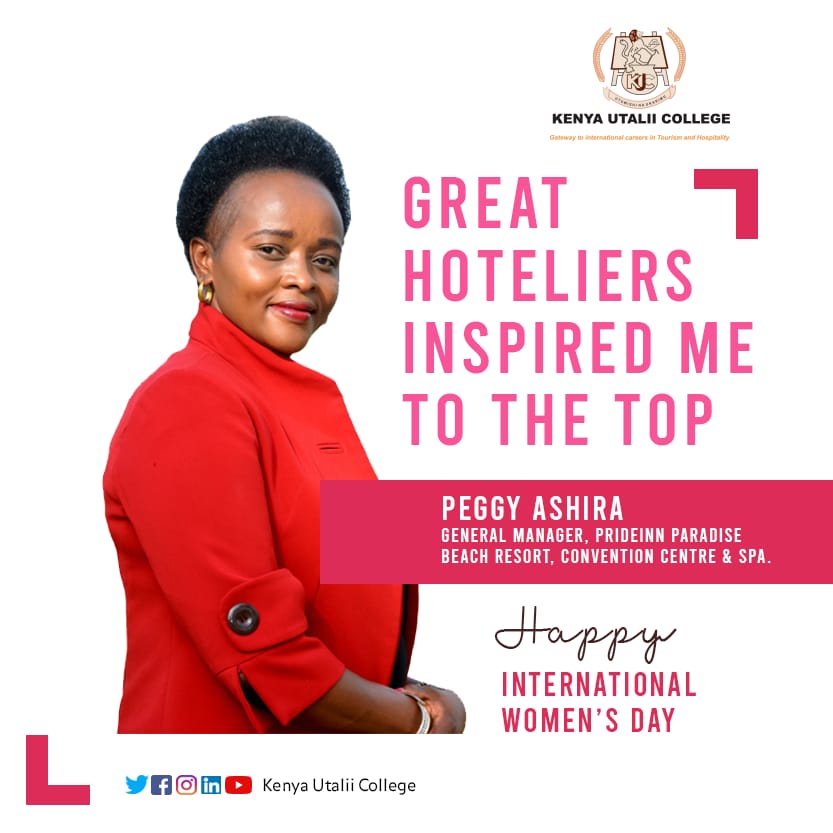Jane Gituma is the Deputy Manager, Business Development and Consultancy Services at Kenya Utalii College. She calls on leaders incharge of human resources to offer support to sick employees during and after treatment.
Treat ailing employees in a humane way
Jane Gituma is the Deputy Manager, Business Development and Consultancy Services at Kenya Utalii College. She calls on leaders incharge of human resources to offer support to sick employees during and after treatment.
How did you start off your career, and who inspired you? I started my career as a secretary in the Ministry of Health and later joined Kenya Utalii College in the same capacity. I was inspired to join this profession by my cousin who used to work for a renowned law firm in Nairobi.
The seniors that I served identified the capabilities that I possessed and encouraged me to go back to school and acquire more education and skills that could propel me to move up the ladder.
Read: Related Women Inspiring Stories Here
As a female leader, what has been the biggest barrier to growth in your career? As a woman leader, when I look at Covid-19 and the challenges it has brought to leaders, employers and employees, it takes me back 23 years ago when I was delivering my last born baby. I suffered renal (kidney) failure due to Focal Segmental Glomerulosclerosis (FSGS).
The journey of treatment became very bumpy. I was in and out of hospital including Intensive Care Unit (ICU) for a period of one and half years fighting for my dear life. I also slipped into coma for some days and people thought I was dead. Some members of staff begun a funds drive to cater for funeral expenses.
In the course of my treatment, I was advised to do a transplant since dialysis and treatment was only for maintenance. We began preparing for a donor and finances to travel to South Africa. During this period, I went through several challenges. Due to the state of my body which oozed smelly water from both legs, I received minimal support and discrimination from colleagues.
Pressure from the employer mounted, as I was required to report back to work. Apart from hospitalization bills amounting to Ksh.4M, I used to take drugs worth KSh50,000 and supplements imported from United Kingdom (UK) and United States of America (USA) costing USD250 (KSh27,250) a month.
Due to prolonged illness period and high hospital bills, a medical Board was convened to discuss my case. I was given an opportunity to defend myself. I appeared before the Medical Board accompanied by my Doctor (Late Prof. A.J.O. Were), while seated on a wheelchair. The Medical Board delivered a verdict that I should resume duties immediately failure to which I was to be retired on medical grounds after two months.
I never slept on the night that followed. I cried the whole night. In the morning, God confirmed to me that He was going to heal me in a meeting presided over by the late Rev. Reinhard Bonnke.
I shared the verdict with my boss (Mr. Danson Mghenyi). He facilitated my return to work by allocating me his official vehicle which would drop me at work and take me back home every day.
He also relieved me most of the office responsibilities and offered flexi-working hours. The medical department also made an arrangement to have the intravenous drugs administered at the Institution’s Clinic since I had exhausted my hospital admission allocation. Although a transplant had not been done, the Doctor discussed my case in a conference in Geneva, and started administering drugs known as Cyclosporin A and Cyclophosphamide which are drugs used by patients who have already undergone the transplant procedure.
At the same time my family and church who were very supportive, continued with prayer and fasting on a daily basis. On 15th August, 1998 at Uhuru Park during a prayer crusade, Jesus healed me. The illness brought about the biggest barrier to the growth of my career and also affected my family.
Later, I was able to go back to school and further my education and acquire new skills. Currently I hold a Master degree in Human Resources Management, a Degree in Entrepreneurship, an International Diploma in Human Resource Management and a Diploma in Management. This propelled me to hold different positions in leadership which include, Deputy Business Development Manager, Deputy Human Resources Manager, Human Resource Officer, Administrative Officer, Banqueting Coordinator and Sales Coordinator
How can women achieve an equal future in a Covid-19 World? Women have to believe in themselves that what a position a man can take a woman can also take up the position and do best. Women can also take advantage of technology and work from home when they are not able to get the office due to family or sickness challenge
Career advice to young women entering your profession during the Covid-19 world? The career of women in leadership is not for the faint hearted. You need to be selfless. Never entertain intimidation from any quarters. Walk tall even when turbulence is heavy. Get ready to turn your challenges to opportunities. Be a team player, assertive and above all, a risk taker.
One recommendation for HR leaders to help promote women in the Covid-19 era at the workplace? The Human Resources department should treat the ailing employees in a humane way by supporting them during and post illness period.
Related Stories:


